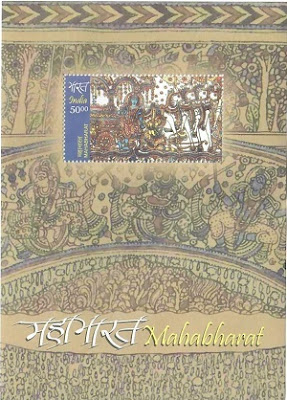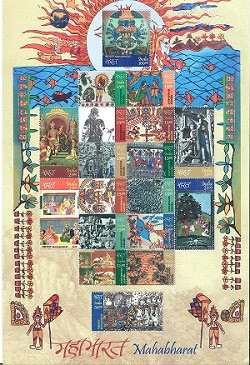
The Mahabharata is India’s greatest epic. ‘Mahabharata’ means ‘Great India,’ India the Sublime. This unparalleled epic is six times the size of the Iliad and the Odyssey combined.
The great sage Veda Vyasa was inspired to write this epic, but he found that it was impossible for him to write it all down himself. So he prayed to Brahma, the Creator.
In the Hindu Trinity, Brahma is the Creator, Vishnu the Preserver, Siva the Transformer.
Vyasa prayed to Brahma and Brahma descended in human form. The sage said to Brahma, “Please send me someone who can write down what I say.”
Brahma said, “Well, there is only one person who can do that, and that is Ganapati. You invoke him, he can take down your dictation.” So Brahma invoked Ganapati, the son of Lord Siva.
Ganapati agreed to write down the epic on one condition. The condition was that Vyasa should not pause; he had to dictate continuously, without interruption. If he hesitated or paused, then Ganapati would leave.
Vyasa consented and said, “Now, I too have one condition, and that condition is that, unless and until you know the meaning of what I dictate, you will not write it down. You have to wait and ask me if there is anything you do not comprehend.”
Vyasa was very clever. He would use complex sentences whenever he needed a break and it would take time for Ganapati to understand them first and write them down; in the meantime, Vyasa was able to get more inspiration and get ready for further dictation.
Thus was the Mahabharata composed.
From: Tales of the Mahabharata by Sri Chinmoy
Published by Citadel Books.

Images of postage stamp miniature sheet and sheetlet issued by India on Mahabharata in 2017, courtesy https://exclusivecoins.blogspot.com/
